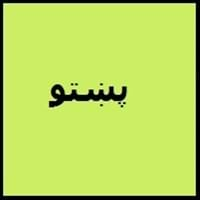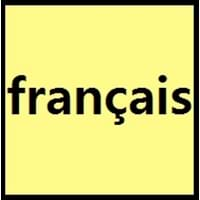Countries
Afganistan
Belgium, Benin, Burkina Faso, Burundi, Cameroon, Canada, Central African Republic, Chad, Comoros, Congo, Cote d'Ivoire, Djibouti, Equatorial Guinea, France, Gabon, Guernesey, Guinea, Haiti, Italy, Jersey, Luxembourg, Madagascar, Mali, Mauritius, Monaco, Niger, Rwanda, Senegal, Seychelles, Switzerland, Togo, Vanuatu
National Language
Afganistan, Pakistan, Pashtun diaspora
France
Second Language
Not spoken in any of the countries
Africa, Canada
Speaking Continents
Asia
Africa, Australia, Europe, North America, Oceania, Pacific, South America
Minority Language
Pakistan
Brazil, Cambodia, United States of America, Vietnam
Regulated By
Academy of Sciences of Afghanistan, Pashto Academy (Pakistan)
Académie française (French Academy), Office québécois de la langue française
Interesting Facts
- Pashto language is originated in the regions of Paktika and Paktia areas of Afghanistan.
- The first Pashto poem was written in the 7th century.
- French is the only language, with English, that is taught in every country of the world.
- French is the top language in Culinary Scene.
Similar To
Persian and Balochi Languages
Italian Language
Derived From
Not Available
Latin
Alphabets in
Pashto-Alphabets.jpg#200
French-Alphabets.jpg#200
Writing Direction
Right-To-Left, Horizontal
Left-To-Right, Horizontal
Hello
(salaam) سلام
bonjour
Thank You
(manana) مننه (tashakor) تشكر
Merci
How Are You?
(ta sanga yee?) څنگه يې؟
Comment allez-vous?
Good Night
(shpa mo pa kheyr) شپه مو په خير
bonne Nuit
Good Evening
(maakhaam mo pa kheyr) ماښام مو په خير
bonsoir
Good Afternoon
(wradz mo pa kheyr) ورځ مو په خير
bon Après-Midi
Good Morning
(sahr pikheyr) سحر پخير
Bonjour
Please
(lotfan) لطفا
S'il vous plaît
Sorry
(zeh mutaasif yum) زه هتاسف يم
désolé
Bye
(da khoday pa amaan) دخداى په امان
au revoir
I Love You
زه ستا سره مينه کوم (za la ta sara meena kawom)
Je t'aime
Excuse Me
(bakhena ghwaarum) بخښنه غواړم
Excuse Moi
Dialect 1
Central Pashto
Quebec French
Where They Speak
Afganistan, Pakistan
New Brunswick, New England, Ontario, Quebec, Western Canada
Dialect 2
Northern Pashto
African French
Where They Speak
Afganistan, Pakistan
Africa
How Many People Speak
Not Available
Dialect 3
Wanetsi
Swiss French
Where They Speak
Afganistan, Pakistan
Northeast France, Switzerland
Second Language Speakers
Not Available
Native Name
(paṧto) پښتو
français
Alternative Names
Kandahar Pashto, Qandahar Pashto, Southwestern Pashto, Pushto
Français
French Name
pachto
français
German Name
Paschtu
Französisch
Pronunciation
[ˈpəʂt̪oː], [ˈpʊxt̪oː]
[fʁɑ̃sɛ]
Ethnicity
Pashtun
Not Available
Language Family
Indo-European Family
Indo-European Family
Subgroup
Indo-Iranian
Romance
Branch
Iranian
Not Available
Early Forms
No early forms
Old French, Middle French and French
Standard Forms
Central Pashto, Northern Pashto, Yusufzai Pashto, Southern Pashto
Standard French
Signed Forms
Not Available
le Français Signé (Signed French, France)
Scope
Individual
Individual
ISO 639 6
Not Available
fras
Glottocode
pash1269
stan1290
Linguasphere
58-ABD-a
51-AAA-i
Language Type
Living
Living
Language Linguistic Typology
Subject-Object-Verb
Subject-Verb-Object
Language Morphological Typology
Fusional
Fusional, Synthetic
Pashto and French Speaking population
Pashto and French speaking population is one of the factors based on which Pashto and French languages can be compared. The total count of Pashto and French Speaking population in percentage is also given. The percentage of people speaking Pashto language is 0.58 % whereas the percentage of people speaking French language is 1.12 %. When we compare the speaking population of any two languages we get to know which of two languages is more popular. Find more details about how many people speak Pashto and French on Pashto vs French where you will get native speakers, speaking population in percentage and native names.
Pashto and French Language Codes
Pashto and French language codes are used in those applications where using language names are tedious. Pashto and French Language Codes include all the international language codes, glottocodes and linguasphere.





